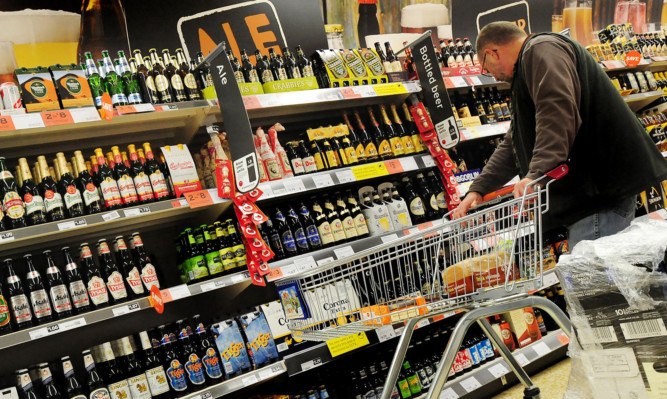Scottish Government plans to bring in minimum pricing for alcohol could breach European trade laws, a new legal opinion suggests.
European Court of Justice advocate general Yves Bot said that the European Union (EU) can only introduce such a policy if it demonstrates more advantages or fewer disadvantages than other alternatives – such as an increase in taxes.
In a legal opinion, he said the fact increased taxation “is capable of procuring additional advantages by contributing to the general objective of combating alcohol abuse does not justify discarding that measure in favour of the MUP (minimum unit pricing) measure”.
The Scottish Government, however, does not have the power to raise taxes on alcohol, with this ability reserved to Westminster.
MSPs passed legislation to introduce minimum pricing in 2012, with ministers proposing this be set at 50p per unit.
The policy stalled after the Scotch Whisky Association and other European wine and spirits producers mounted a legal challenge, arguing that minimum pricing would breach European law.
The legal bid was initially rejected by judge Lord Doherty at the Court of Session in Edinburgh in 2013.
Following an appeal hearing, the case was referred to the Luxembourg court last year for its opinion on six points of European law.
A hearing took place in May before the advocate general and court judges, who will now consider the legal opinion and give their ruling later this year or early next year.
The case will then be referred back to the Court of Session for a final decision.
Mr Bot said he considered that “it is for the those responsible for the drafting of those rules to show that increased taxation is not capable of meeting that targeted objective”.
But he added: “They adduce no serious evidence to show that, as they maintain, increased taxation would have a ‘disproportionate’ impact by comparison with the objective sought.”
He said: “While it is ultimately for the national court to identify the precise objectives of the measure in question, to examine the merits and disadvantages of an ‘increased taxation’ measure and to ascertain whether that alternative presents a better cost-benefit outcome than the setting of a minimum price, I feel that, having regard to the principle of proportionality, it is difficult to justify the rules at issue, which appear to me to be less consistent and effective than an ‘increased taxation’ measure and may even be perceived as being discriminatory.”
Mr Bot continued: “In order to pursue the objective of combating alcohol abuse, which forms part of the objective of protecting public health, a member state can choose rules imposing a minimum retail price of alcoholic beverages, which restricts trade within the European Union and distorts competition, rather than increased taxation of those products, only on condition that it shows that the measure chosen presents additional advantages or fewer disadvantages by comparison with the alternative measure.
“The fact that the alternative measure entailing increased taxation is capable of procuring additional advantages by contributing to the general objective of combating alcohol abuse does not justify discarding that measure in favour of the MUP measure.”
